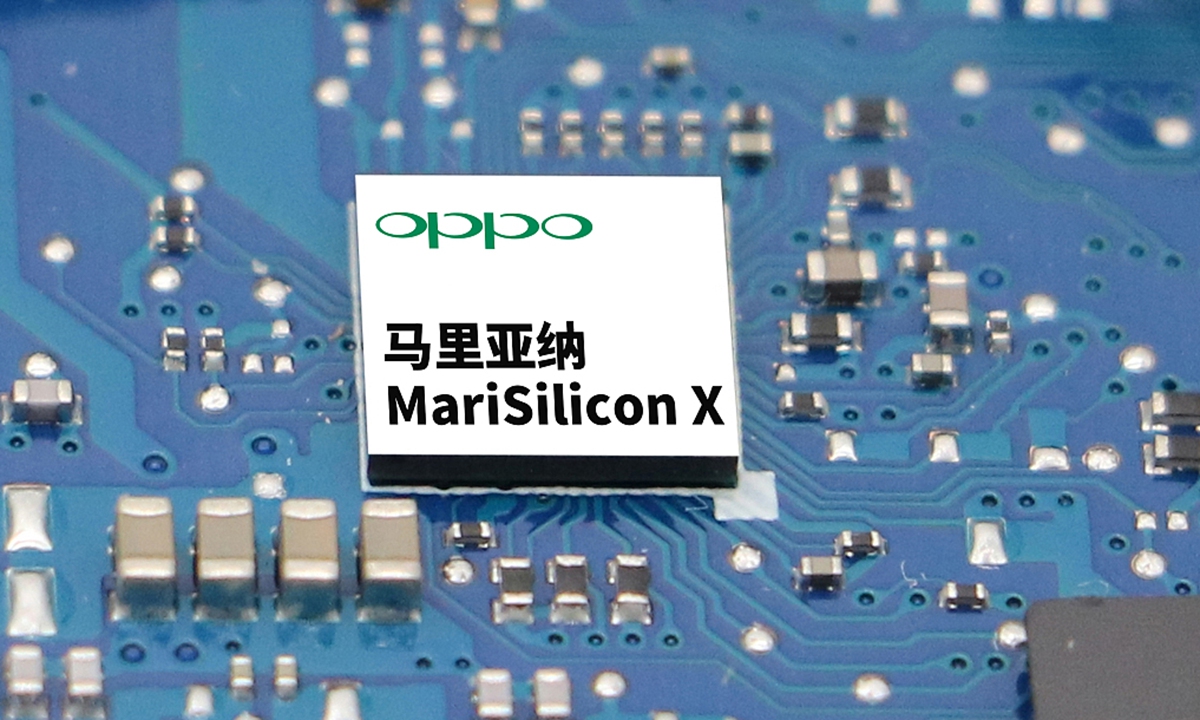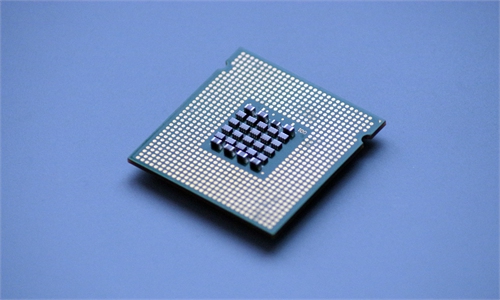
Photo: VCG
Chinese phone maker OPPO launched its first self-developed chip on Tuesday, a key breakthrough in core technology, as more Chinese companies strive to achieve chip supply autonomy.
The name of OPPO's chip, MariSilicon X, is inspired in the Mariana Trench, the deepest place in the sea in the world, reflecting the difficulties of developing a chip, OPPO founder and CEO, Chen Mingyong, said on Tuesday adding that the company will continue increasing investment on the self-developed chip with a team of thousands in a down-to-earth manner.
"The birth of MariSilicon X signals that OPPO has entered the 'deep waters' of R&D. Technology companies must solve key problems with breakthroughs in key technologies. Without core technology there can be no future," Chen said.
The MariSilicon X, which adopts a 6 nm advanced process technology, is the first NPU chip designed for imaging at the mobile terminal and will be carried on the latest series of OPPO's high-end flagship Find X devices in the first quarter of 2022.
Prior to OPPO, domestic phone makers Xiaomi and VIVO released their self-developed imaging chips, the Xiaomi Surge C1 and VIVO V1.
Same efforts have been made in the Chinese car industry. On Friday, SiEngine Technology, a Wuhan-based car chip designer, revealed China's first 7-nanometer chip used for smart intelligent automobile cockpits.
Mass production of the chip will start and it will be installed in Geely vehicles by late 2022.
The chip will break the monopoly of international suppliers in this market and fill the gap of self-designed main chips of high-end intelligent cockpit platforms in China, Zhejiang Geely Holding Group said in a statement on Tuesday.

